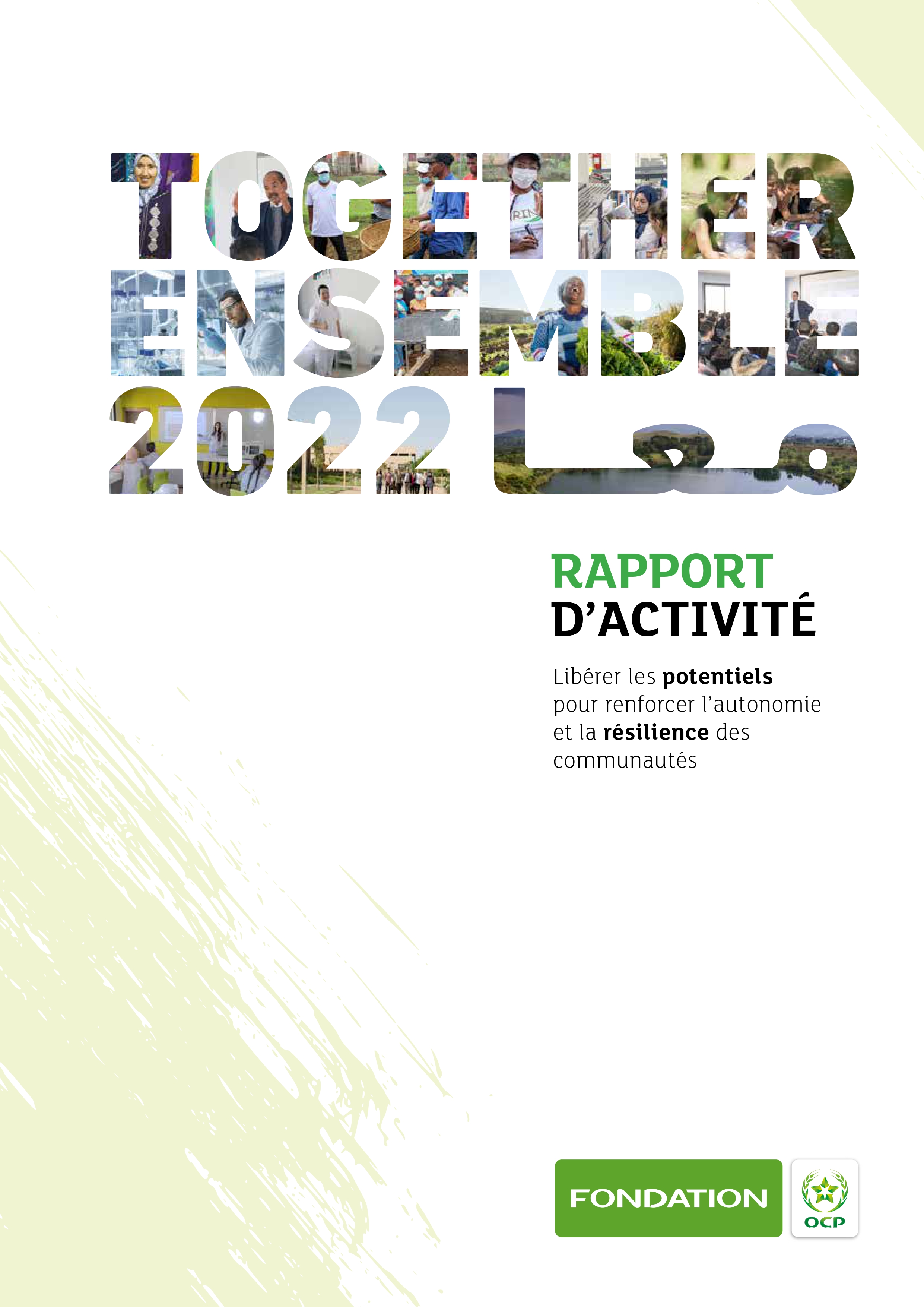The OCP Foundation
all-out mobilization on the continent

Recognized as a non-profit organization in the public interest, the OCP Foundation published its 2022 annual report in early May. Research and development (R&D), social innovation, food security: the phosphate and fertilizer giant’s foundation is active on all fronts, from Morocco to Madagascar.
In 2022, the OCP Group, the world’s leading exporter of unprocessed phosphates, phosphoric acid and phosphate-based fertilizer, posted $11 billion in sales. Created a century ago and nationalized shortly after independence, OCP aims to “nourish the soil to feed the planet” with an eye towards achieving “sustainable growth for all” while reaching carbon neutrality by 2040. Its foundation, a non-profit organization recognized in 2012 as being in the public interest, promotes education, research and development, social innovation, food security, resilience to climate change and the preservation of biodiversity in Morocco, on the African continent and as far afield as Bangladesh. The main idea behind the OCP Foundation’s activities is “sustainable innovation”: “initiating responsible projects for future generations”. Last year, it backed 265 projects, funded over 3,300 grants and sponsored some 600 schools. In Morocco, in addition to its strong support for start-ups and young talent, the OCP Foundation assists some 600 cooperatives via the Mourafaka Program in partnership with the Ministry of Social Economy. It also helps them sell their products by supporting Sookoa, a dedicated e-commerce site specializing in local produce and handicrafts.
Characterizing soils to adapt better
“Soil degradation caused by drought, climate change and, in some cases, poor management of land resources by local populations affects two-thirds of the continent's land area,” the foundation wrote in its 2022 annual report. “The lack of jobs and ongoing destruction of livelihoods mean that young people living in rural areas face a particularly unpredictable future. ”That is why the OCP Foundation and Mohammed VI Polytechnic University have undertaken a soil characterization program involving some 5.4 million hectares in eight African countries. “Deeper knowledge of soils allows more sustainable agricultural practices to be developed that are better adapted and give higher yields, ”explains the foundation. Programs can be targeted better, too. In Togo, for example, the foundation works with local radio stations to spread good agricultural practices. In Senegal, it is a partner of the Agence Sénégalaise de Reforestation et de la Grande Muraille Verte (ASRGMV). In Madagascar, it is involved in several reforestation projects. In Rhamna province, Morocco, the OCP Foundation and Mohammed VI Polytechnic University have launched a “territorial performance observatory” to draw up a “vulnerability map” charting the “economic impact of climate change”, which will make it possible to “propose an action plan to achieve the goal of a resilient province”.